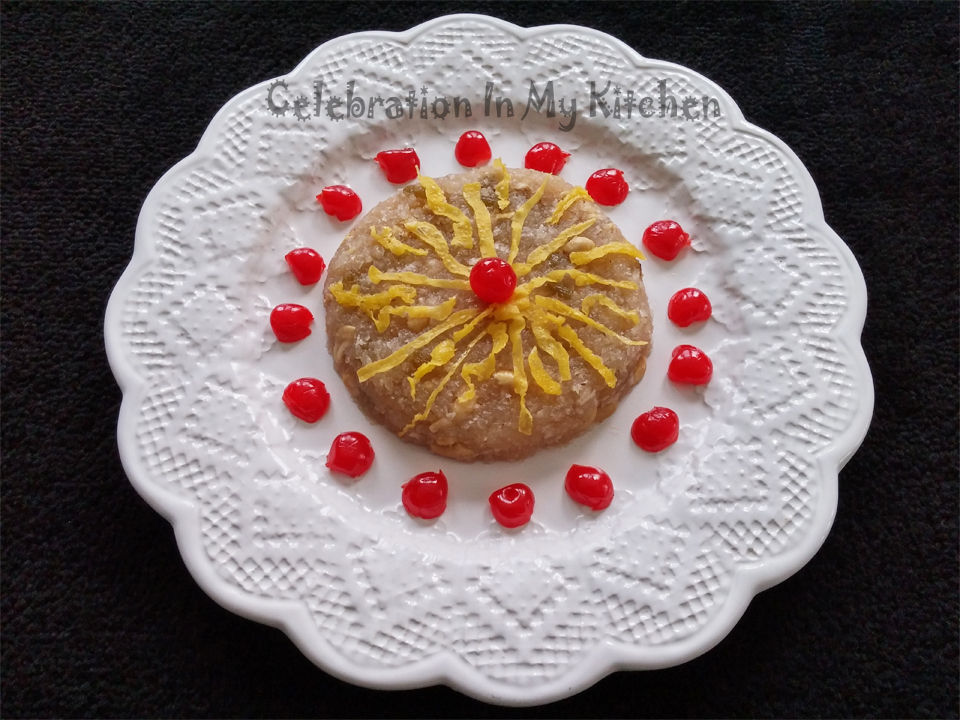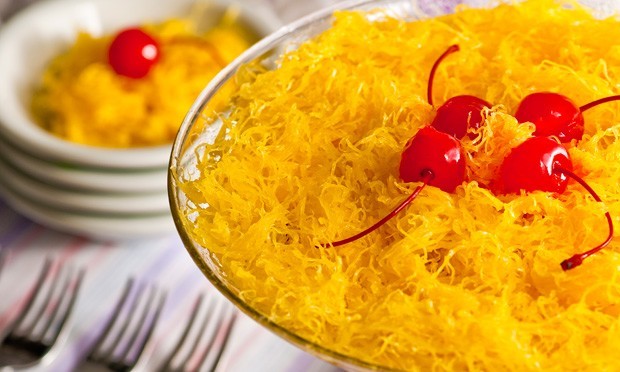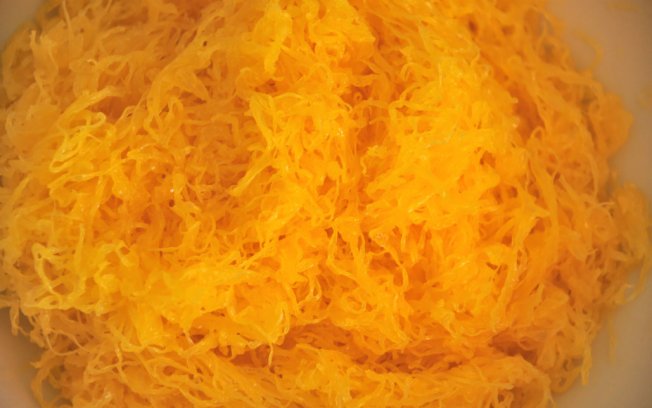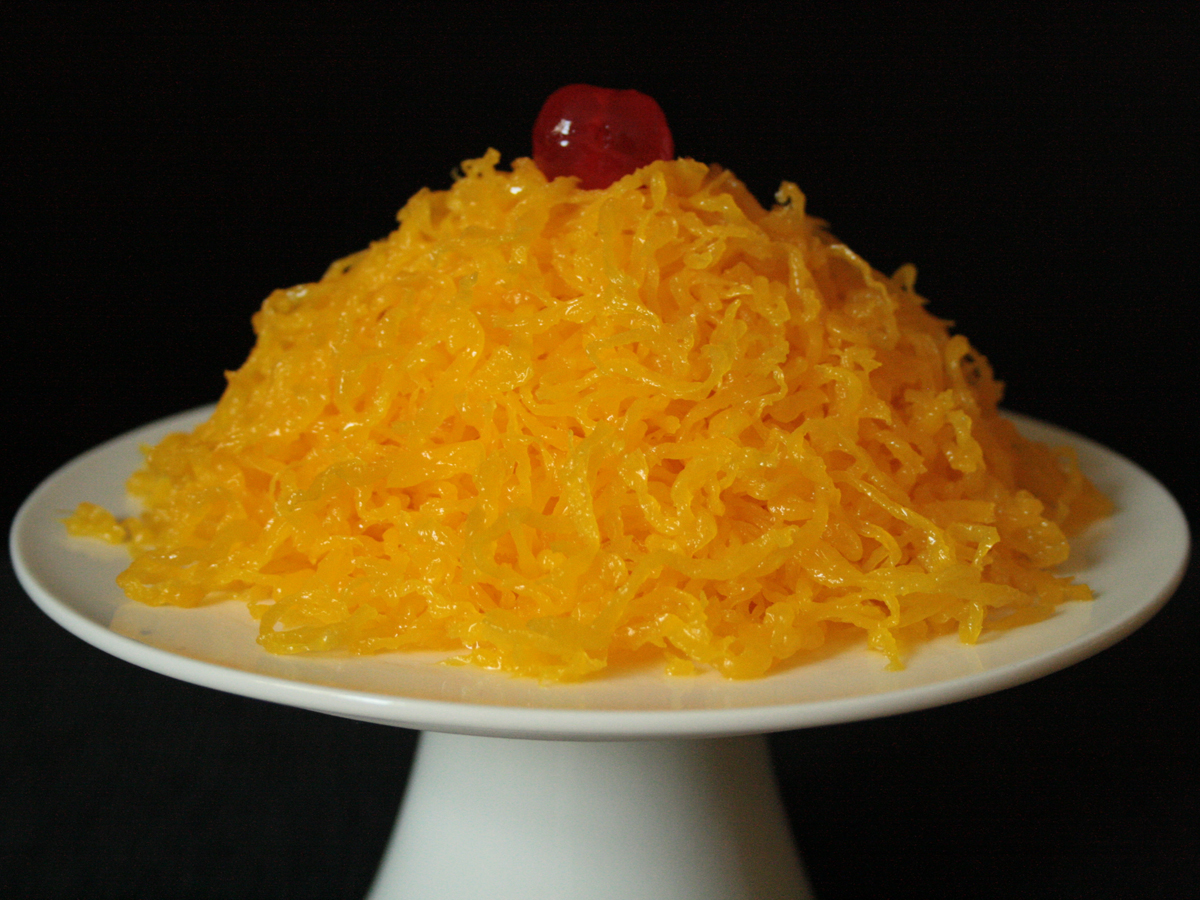Fios de ovos
angel hair
Fios de ovos is a traditional Portuguese sweet food made out of egg yolks, drawn into thin strands and boiled in sugar syrup. It is used as a garnish on cakes and puddings, as a filling for cakes, or eaten on its own. Through Portuguese trade and colonization, the dish has spread to many countries in Asia. In Japan, it is known as keiran sōmen (鶏卵素麺, lit. 'hen egg noodles'), in Cambodia as vawee (Khmer: វ៉ោយ), in Malaysia as jala mas (lit. 'golden net'), in Thailand as foi thong (Thai: ฝอยทอง; lit. 'golden strand'), and in the Malabar region of Kerala, India as muttamala (മുട്ടമാല; lit. 'egg chain' or 'egg necklace'). This dish is called letria in Goa. Fios de ovos is also popular in Brazil, as well as Spain, where it is known as huevo hilado. In Seville, it is shaped into peaked cones called yemas de San Leandro [es]. Like other egg-based Portuguese sweets, fios de ovos is believed to have been created by Portuguese nuns around the 14th or 15th century. Laundry was a common service performed by convents and monasteries, and their use of egg whites for "starching" clothes created a large surplus of yolks. Between the 16th and 18th centuries Portuguese explorers took the recipe to Japan, Thailand and parts of India.
Source: Wikipedia
Recipes





